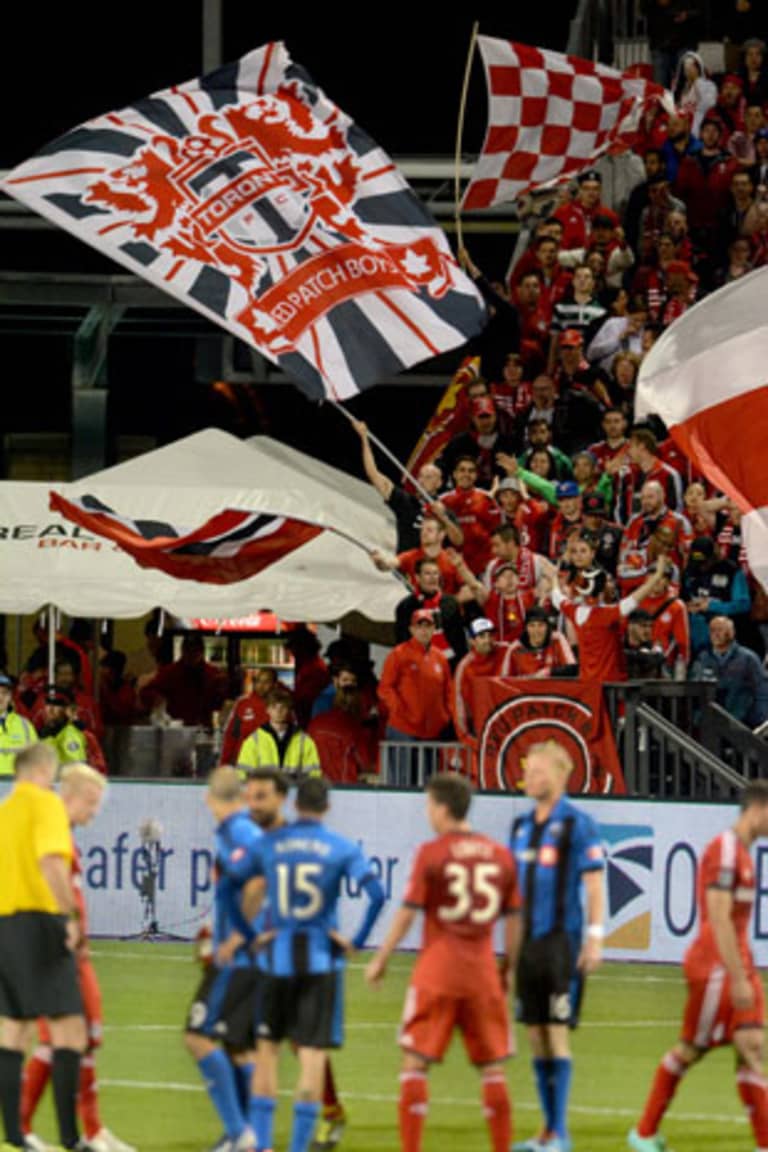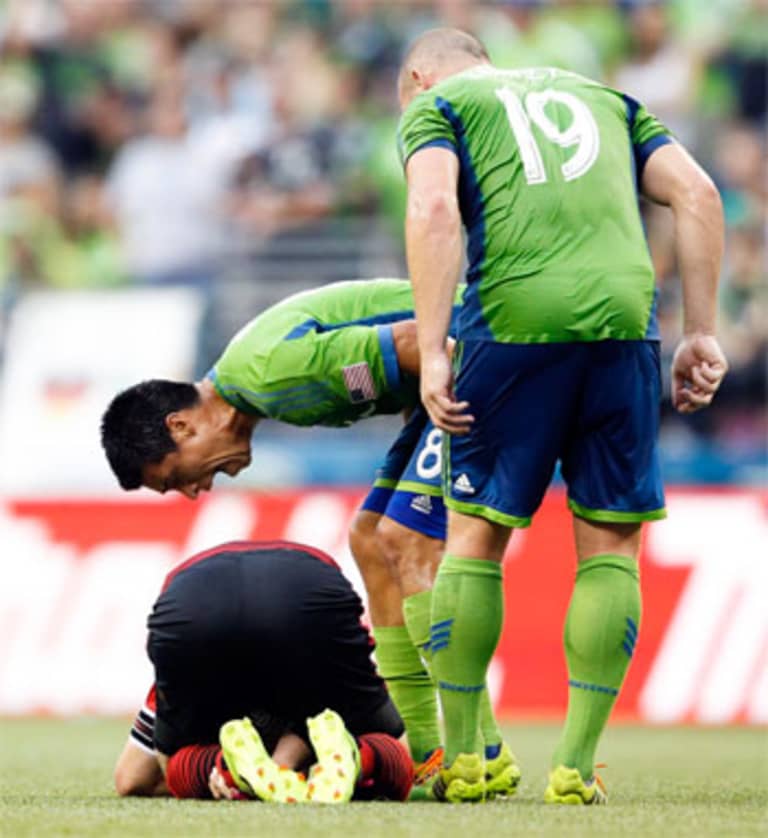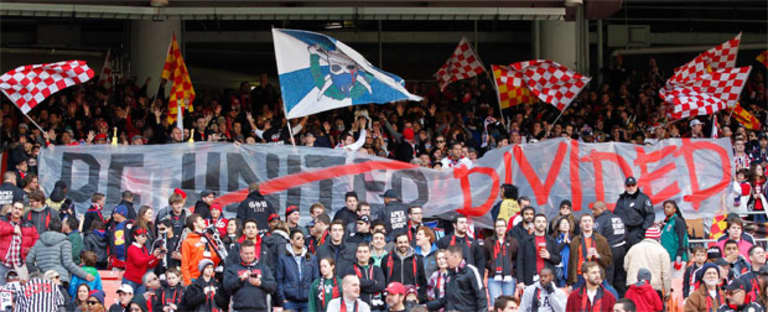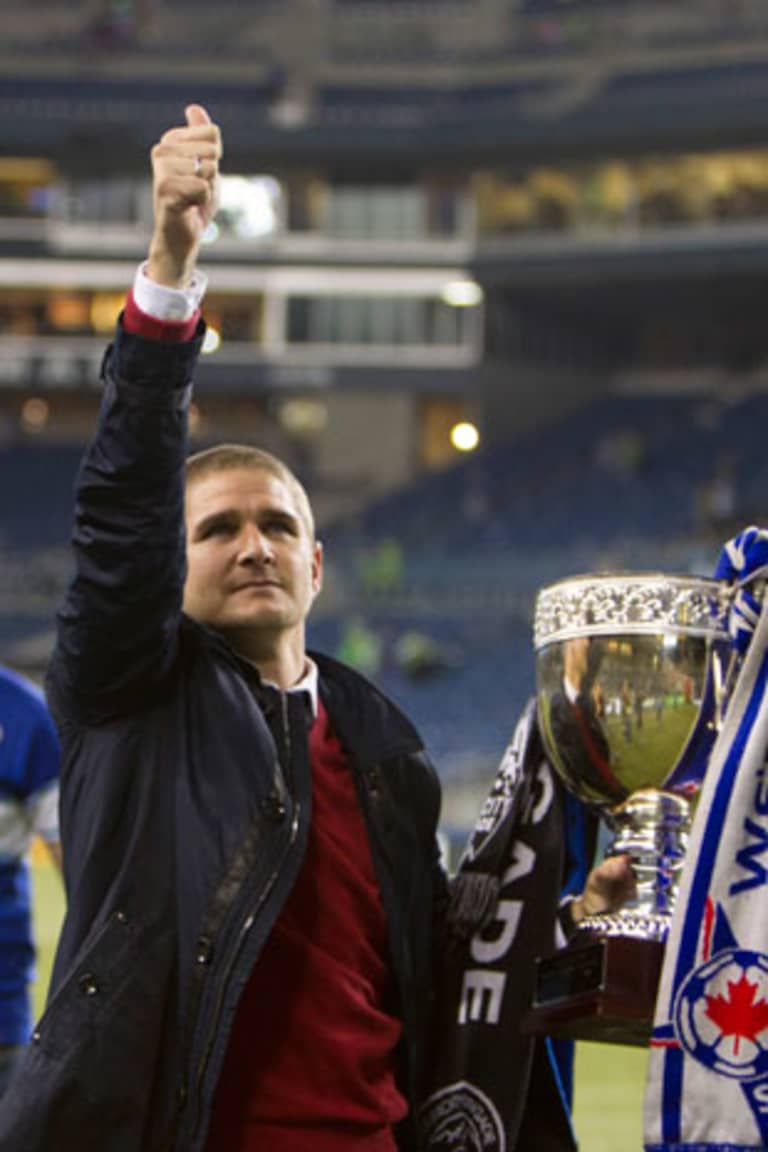Editor's Note: Originally drafted by FC Dallas in the first round of the 2011 SuperDraft, Bobby Warshaw spent more than two years in Major League Soccer, and he currently plays for Norwegian First Division club Bærum SK. A formeracademic standout at Stanford University, he has also written for Deadspin.com and PennLive.com. His viewpoints do not necessarily represent that of the editorial staff of MLSsoccer.com.
There are some things athletes simply don’t say.
You’re right, that was a cross, but I hit it wrong and luckily it ended up upper 90.
Yes, I tried to lower my shoulder pads into his knees and knock him out for the season.
No, I don’t care as much about beating the Yankees as the people of Boston do.
I like rivalries as much as anyone – I'm a fan at heart – but as a player, it can be a bit problematic. Players don't always feel the same way about rivalries that fans do. Players respect the concept, but we don't feel the same emotion.
Because we can't.

If we suggest that rivalry games mean more, that means that the other games must mean less. If we put more into a rivalry game, it presumes we could be giving more in other games. If a player could give more in other games than he already puts forth, then, well, he’s either not a professional or he’s leaving a lot of money on the table. Rivalries, therefore, can’t be a priority.
“You shouldn’t need a rivalry game to get fired up.” Those are the words of a mentor of mine, and I try to give them life every time I wear my team’s colors.
I know that fans measure the joy of winning and the agony of losing according to the opponent. I’m no different. I would rather the Eagles lose to the Bills than the Cowboys. I hate the Cowboys and their stupid star.
To the players who embody the rivalry on the field, though, a win is a win. It’s all about the standings. The margins are too fine to care where, how, or against whom you get points.
D.C. United and New York have one of MLS’ most heated rivalries, the Atlantic Cup. Their fans travel up and down I-95 to support their teams away from home. In the standings, though, there is nothing inherently more valuable in a D.C. United win over New York (or vice versa), than there is in a win over Crew SC. Or Chicago. Or Montreal.
The hard truth is that if Crew SC are closer in the standings, then the D.C. United locker room would prefer to beat the Crew than the Red Bulls. It’s the player’s job to put certain feelings aside and worry about the task at hand. Professional logic needs to trump emotional investment.
Plus – and this is something many people forget – it’s hard to hate someone you know.

MLS players know guys on every team. They went to college together or played on youth national teams at the same time. They stay in-market the night after the game and often get dinner with friends from the other team.
Also, many players have sported the jersey of more than one club. Remember, we are professionals who come do a job. These days, only the lucky few, like Houston's Brad Davis, are with one club long enough to embed themselves in club history.
How do you ask a guy who has played for four teams to despise his opponents just because they are from the next city over? How many crests can one person hate in a lifetime?
- Ultimate Soccer Road Trip: 12 games in 24 days, coast to coast!
---
Now, having said all that, here's the other truth. Obviously, the game isn’t played in a vacuum, and it's clear from the rampant emotion on a player's face that some goals and wins mean more than others. See, players are surrounded by a hive of fan, media and marketing activity that thrives on peripheral issues, on emotion. And a rivalry game is just any other game -- until the week of the game.
At that point, it becomes an all-consuming, do-or-die existential battle.
Most weeks, a player shows up to training, does his work on the field and in the weight room, then heads home. The week of a rivalry game is much, much busier. The team’s marketing arm asks you to crush oranges with baseball bats or shoot an arrow through a can of Red Bull or whatever. The local media ramps up coverage, sticking microphones in your face to ask how badly you want to beat those jerks on the other side.
Meanwhile, your Twitter notification box blows up: Let’s do this @bwarshaw14!

Then gameday arrives, and the crowd is bigger and the fans are louder. ESPN makes it the game of the week, and the local news station sends a television crew. You walk off the field, and the sideline reporter with the perfect hair is waiting to conduct a pregame interview. Then a tackle leaves a player writhing on the field, and the whole crowd erupts.
I’ve talked to a lot of players, and they all swear crowds don’t impact them. But like wind and rain can impact the game, so can noise levels and crowd reaction. Nobody is a robot. A player won’t train more or prepare differently for a certain game, but once you’re in the moment, the conditions at the stadium can change you.
The Benjamins, per usual, also factor in. More fans also means there’s more on the line, for both team and individual. Heroes have more value. If you score a game-winner in a big match with a full house and the 25,000 people stand to cheer your name, your public image (not to mention your pocketbook) is liable to balloon. That'll motivate anyone.
---
We should pause here to think about what makes for a great rivalry. What's at the core of all the excitement? Clearly just calling something a rivalry doesn't make it such. A rivalry, by definition, demands something deep and real.

Last year, when I was with Swedish club GAIS, I was walking through the food open market in Gothenburg, two months after the 120th anniversary of the club. A man behind a nearby counter called out to me.
“Bobby, what happened yesterday?” he said.
I was bewildered for a second, mostly because the butcher knew my name.
“How can you let that happen?” he continued. “We don’t get outworked by anyone. No one fights harder than us. Those [expletives] across town might let that happen, but not us."
In Gothenburg, supporting GAIS over the other local club, IFK, means you identify with the working class, and to stray from that tradition didn’t just threaten our identity, it made you one of them.
Does a rivalry need to be tribal and historic? Or can it be fleeting and flexible? The NBA's Pistons and Bulls used to have epic matchups that made Detroit electric, but now you couldn't pay most people to sit through a Pistons game (says the Sixers fan). Is MLS's Seattle-Portland rivalry, which is based on long-standing competition between the clubs and their supporters, a better recipe than LA-Real Salt Lake, which has been arisen from battles on the field and trophies the case?
In the end, I lied to the man at the market. I told him I felt his pain.
But I didn't feel his pain. I felt my own, and it was a different kind of pain, one caused not by the fact that we didn't get the desired result, but by the fact that someone thought an opponent had outworked me. I didn't care about the local rivalry as much as I did about my pride in doing a job well.
That’s one of those things athletes don’t say – or aren’t supposed to, anyway. Ultimately, we respect the feelings of the fans, even when we might not feel the same way.
None of this should change the way you, the fans, feel. It doesn't for me any time I see that damn Cowboys star. When it comes to rivalries, those invested rightfully hold all the power, no matter what anybody -- including the players -- says.












